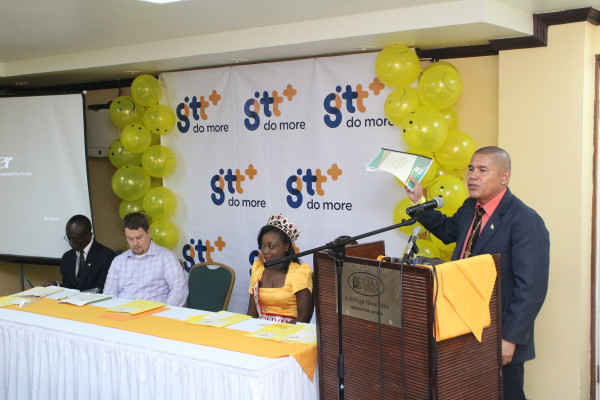The Ministry of Public Health on Thursday launched a national suicide prevention strategy to reduce the incidence of suicide mortality and attempted suicide in Guyana by 20% in the next five years.
The launching of the strategy, which has been dubbed the “Suicide Prevention Plan (SPP) 2015-2020,” coincided with World Suicide Prevention Day, which was observed under the theme ‘Preventing Suicide: Reaching Out and Saving Lives.’
Guyana presently boasts the highest estimated suicide rate in the world and the SPP is intended to begin the process of reaching out through several strategic line actions throughout the next five years.

Speaking at the launch, Minister of Public Health Dr. George Norton praised the plan for its multi-sectoral approach and it encouragement of community participation with an interest in suicide prevention to mobilise resources in an effort to save lives.
In his presentation on the plan, Norton acknowledged that it is necessary to do more than present plans and he voiced his confidence about implementation.
The first step in this implementation is through training, including educational seminars for medical staff that will commence in the new week; training for officers of the Ministry of Social Protection on mental health and suicide prevention; and continuous medical education of the Guyana Medical Council in the area of suicide prevention management.
The Ministry in collaboration will also be hosting an engagement with the media on September 18 which will seek to enlighten media practitioners on ethical and professional reporting on Mental Health issues
“The Ministry of Public Health through its mental health unit is grateful that the National Suicide Prevention Plan will provide the necessary tools and guidance to develop not only prevention strategies but create opportunities for collaboration with other agencies to assist persons affected by this problem and to facilitate their complete recovery. Let’s work together to reduce the incidence of suicide mortality and attempted suicide by 20%,” Norton said.
Reducing risk factors
One of the primary aims of the SSP is to reduce the risk of suicide in key high risk groups by comprehensively addressing common risk factors.
These groups include Indo-Guyanese males; people with depression; specific occupational groups, such as farmers and agricultural workers; people who misuse drugs or alcohol; and survivors of abuse or violence.
The first line action intends to reduce the risk factors for suicide while promoting a healthy lifestyle and preventing suicidal behaviour.
The first stage in the implementation of this action is the provision of evidence-based information on the magnitude, risks and consequences of suicidal behaviour. This would require that detailed research be conducted into these areas and information systems be designed to disseminate this information to various groups within the society.
Recent research conducted by national Psychiatrist, Dr Bhiro Harry and others at the Georgetown Public Hospital Corporation has revealed there were 946 suicide deaths from 2003 to 2007 and 673 suicide deaths from 2010 to 2012.
Statistics released by the World Health Organi-sation (WHO) have shown that in Guyana roughly one person dies every day and a half and that suicide is among the three leading causes of death among those aged 10 to 24 years.
Acknowledging that depression is one of the most important risk factors for suicide, the SPP intends to enable the health sector to engage in early identification and prompt, effective treatment of depression.
The plan is classified as part of the National Mental Health Action Plan 2015-2020 that would see access to proper mental health care being deemed part of the provision of primary health care.
According to the SPP, routine assessment for depression is to be part of the personalised care planning, especially for persons with long-term physical conditions, since the ability of frontline agencies to identify and support people who may be at risk of developing mental health problems is important for suicide prevention.
The line action is rooted in treating mental and physical health as equally important in the context of suicide prevention.
The National Mental Health Action Plan, of which the SPP is a part, aims to reduce the risk of mental illness through strengthening health promotion strategies and ensuring that people suffering from mental illness are able to access the services needed for effective treatment and rehabilitation.
The second line of action aims to reduce access to the means of suicide.
The SPP notes that 63.7% of suicide cases are related to the accessibility of lethal substances, such as herbicides and pesticides.
With almost 75% of all suicide deaths in Guyana occurring due to self-poisoning by toxic substances, the SPP intends to actively involve the community to find locally feasible ways to implement interventions at the community level to reduce access to means of suicide.
In addition, it intends to establish collaboration between health and other relevant sectors, such as agriculture and education, to restrict access to locally relevant means of suicide.




